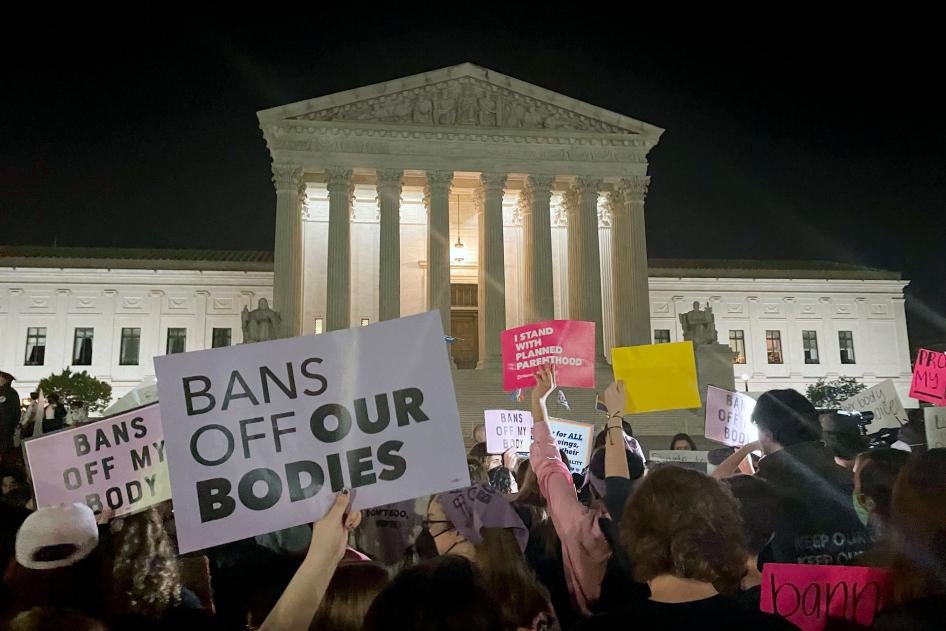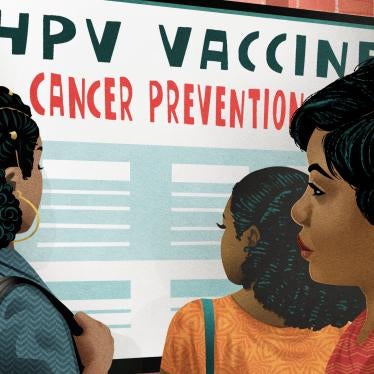On Monday night, POLITICO published a leaked draft US Supreme Court opinion on the Mississippi case that would overturn Roe v. Wade.
Last September, in advance of the court’s hearing in a case challenging the constitutionality of a Mississippi law banning abortion after 15 weeks, we joined dozens of other groups in submitting amicus briefs providing additional context for the court to consider. The lesson is clear: If an abortion ban like the one in Mississippi becomes law, it will be catastrophic.
This is what our brief, submitted together with Amnesty International and the Global Justice Center, said that Roe means for human rights:
- Banning abortion would have a significant negative impact on the health of pregnant people.
- The worst impact would be on marginalized groups, including people living in economic poverty, young people, and Black, Indigenous, and other people of color. These populations already face significant barriers accessing abortion care.
- In country after country, abortion bans have not decreased the number of abortions, but rather increased unsafe abortions, especially affecting people of limited means.
- In countries across the world, including Romania, South Africa, El Salvador, and Ecuador, there is a statistical relationship between restrictive abortion legislation and increases in maternal mortality and morbidity.
Access to safe and lawful abortion services is firmly rooted in the rights to life; to nondiscrimination; to be free from torture and cruel, inhuman, or degrading treatment; and to privacy, among others. These rights are recognized in international human rights treaties ratified by the United States.
In December, after hearing arguments in the Mississippi case, a majority of the justices signaled that they were prepared to overturn the landmark ruling that protects abortion access in the US. If they do, this would put the US out of step with international trends toward greater access. Recently, Argentina, Colombia, and Mexico have, by legislative changes or judicial rulings, either decriminalized abortion or loosened restrictions, better protecting women’s health and rights.
Please note: It is a DRAFT opinion. Abortion is still legal in the US (Texas notwithstanding).
It remains a constitutional and human right.
Congress can and should enact legislation to protect abortion access.
But as Monday night’s news made clear: The US has reached a crisis moment for abortion access.
*This dispatch is part of a series of articles looking at abortion rights around the world. You can find the series here.
Or read them individually here:
US Supreme Court Topples Roe v. Wade in a Blow to Rights
The US Is Falling Behind Other Democracies When It Comes to Abortion
As US States Restrict Abortion Access, Mexican States Expand It
Recognized Yet Limited: Abortion Rights in Nepal
US States Should Protect Youth Abortion Access
South Korea’s Constitutional Right to Abortion
How Colombia Could Inspire the Fight for Abortion Rights in the US










